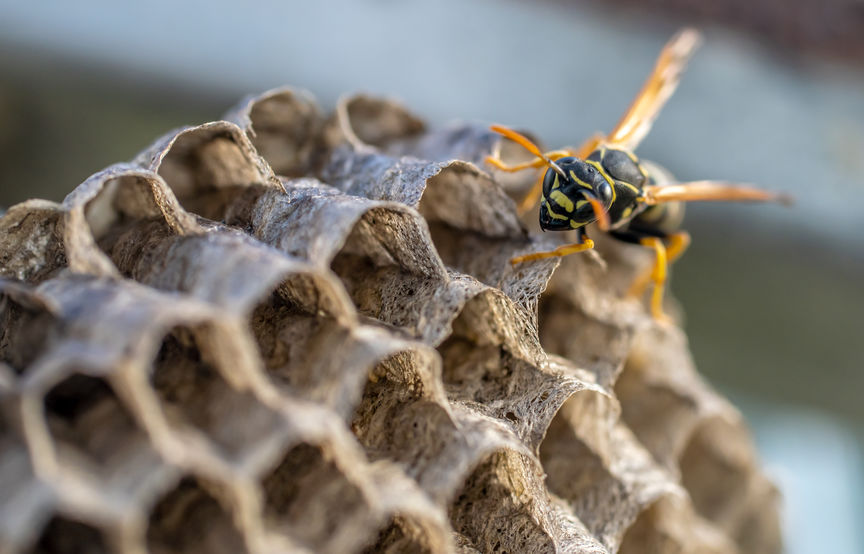 Flying insects are some of the most invasive species that a homeowner can encounter. Some flying insects are known to bite, while others have sharp stingers that they use when they feel threatened. Flying insects can be threatening to have around your home because some people can have life-threatening reactions to their bites or stings, and they can cause severe damage to your property.
Flying insects are some of the most invasive species that a homeowner can encounter. Some flying insects are known to bite, while others have sharp stingers that they use when they feel threatened. Flying insects can be threatening to have around your home because some people can have life-threatening reactions to their bites or stings, and they can cause severe damage to your property.
Some of the most popular flying insects that are known to invade your home, especially during the summertime, are wasps and carpenter bees. Although these insects may come from the same family, they are surprisingly two very different species.
So, what exactly are the differences between wasps and carpenter bees? Let’s take a look:
Carpenter Bees
As the weather starts to warm up, don’t be surprised to see more carpenter bees when you are outside. Carpenter bees love to rest during the winter, before they re-appear in the spring during their mating season. Carpenter bees don’t look like your stereotypical fuzzy, yellow bee. Instead, they have a large black abdomen with minimal color on their thorax.
Surprisingly, the male carpenter bees don’t live to be very long and are usually harmless. On the other hand, female carpenter bees have a stinger, and they aren’t afraid to use it when they feel threatened.
Handling Carpenter Bees
If you notice an abundance of carpenter bees in your yard, don’t try to tackle them yourself. You can usually tell that you have a carpenter bee infestation if you notice carpenter bee holes throughout your yard. When you call a professional exterminator, they will identify these burrows and use different treatments with insecticide to close the hole and prevent bees from re-entering.
Wasps
Wasps are usually professionally described as any individual insect that does not live in a hive. There are a few different species of wasps, including paper wasps, potter wasps, mud wasps, and pollen wasps. Wasps can be recognized by their pinched waist between their thorax and their abdomen.
Handling Wasps in Your Yard
Wasps are known to be aggressive. Their behavior usually varies dramatically between species, but overall, they aren’t afraid to attack when they feel threatened. Always call a professional to help manage your wasp infestation because if you try to tackle the project on your own, you may contribute to an accidental re-infestation.
Whether it’s carpenter bees, wasps, or another member of the bee family, don’t forget to contact Amherst Exterminators to help take care of your infestation.


